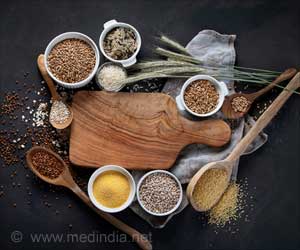Low cost sanitary napkins could ensure better hygiene for poorer women, and some non-governmental organizations (NGOs) in India are working on the idea.
Low cost sanitary napkins could ensure better hygiene for poorer women, and some non-governmental organizations (NGOs) in India are working on the idea.
More often than not, the women from the underprivileged sections tend to use rags, strips of sack, leaves, newspaper and even sand or ash during their menstruation, thus becoming vulnerable to infection.It's a serious health issue that's frequently missed out in healthcare programmes, activists feel.
Anshu Gupta, director, Goonj, a Delhi-based NGO which channels used clothes and other material from urban to rural areas, says, "Most don't have enough clothes to cover themselves; where will they find cloth for those five days?" Even the ones they use would be dirty rags as menstruation is culturally considered dirty or impure.
Plus, there is the issue of privacy. Poor women often have to walk to distant spots near a river or a lake to wash the cloth. As a result, they run an increased risk of becoming victims of sexual violence.
Plus, sun-drying the cloth is problematic as many wouldn't want men to see their 'shame'. As a consequence, most end up using damp cloth, raising the risk of infection. Also, girls are forced to miss school as they don't have adequate protection alternatives. The sanitary napkins available in the market are mostly beyond their means.
However, succour is in sight. Some organisations have been looking at low-cost alternatives. "What they need is something that's highly reusable," says Gupta.
Advertisement
The project has won a World Bank award, and last month, Goonj also bagged the NGO of the Year award, jointly instituted by UK-based The Resource Alliance and Nand and Jeet Khemka Foundation for its transparency and accountability, writes Saira Kurup in Times of India.
Recalls Latha Mathivanan, director of the trust, "When we were working on the reproductive health project in the district, we came across a woman who was bitten by a scorpion hiding in a rag that she used as a napkin. That prompted us to start this project."
AT was aided by a Japanese doctor who arranged for the import of the polymer, and by World Bank. The SHGs have a revolving fund and keep the profits made from selling the napkins. They will be applying for bank loans too. "If the production increases, the price can come down. Our main aim is to make women use the napkins," Mathivanan says. But bring about behavioural change here has been a tough process, despite holding classes on hygiene. Adding to it is the low priority a woman accords to her own health.
However, in Angara block in Ranchi district, some women have amazingly moved on and started purchasing branded napkins. Says Rini Sinha, assistant director of the health programme at Society for Rural Industrialisation (SRI), Ranchi, "With improving purchasing power, women have better decision-making capacity."
In a project funded by the Department of Science and Technology, SRI trains SHGs in making napkins of cotton cloth, absorbent paper and cotton — all biodegradable materials to make disposal easier. They are sold under the brand name 'Mukti', and priced at Rs 15 for a pack of 10. "We are trying bring down the price to Re 1 each," adds Sinha. The project started after a medical camp was held in Angara at the instance of Dr Abdul Kalam when he was principal scientific adviser. Says Sinha, "We had to do more of husband counselling because they were the ones paying for the napkins."
These innovations offer not just better health, but also greater decision-making and purchasing power to those at the bottom of the pyramid, it is felt.
Source-Medindia
GPL/L






